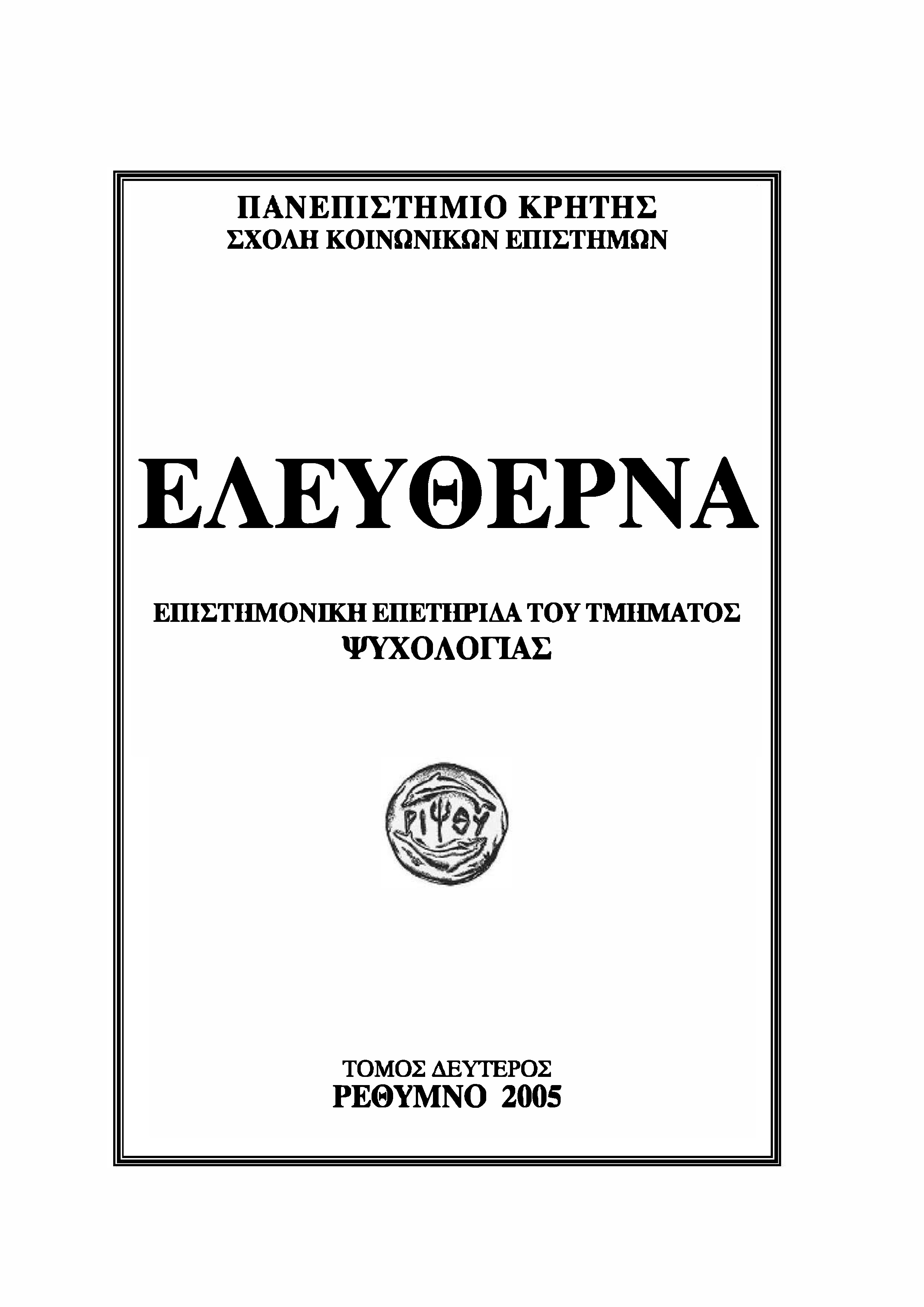Πρότυπα Ενδοοικογενειακών Σχέσεων μεταξύ Τριών Γενεών Αυτοαναφορές Ελλήνων Ενηλίκων Ατόμων 2ης Γενιάς και η Σχέση τους με τη Λειτουργικότητα της Πυρηνικής τους Οικογένειας
DOI:
https://doi.org/10.26248/eleutherna.v2i0.151Λέξεις-κλειδιά:
διαγενεακά πρότυπα σχέσεων, διαγενεακή μεταβίβαση, προσωπική αυτονομία, οικειότητα, λειτουργικότηταΠερίληψη
Σκοπός της παρούσας μελέτης ήταν να διερευνηθεί στα πλαίσια της ελληνικής πραγματικότητας και πάνω στη βάση της Διαγενεακής Συστημικής Προσέγγισης, εάν και πώς τα πρότυπα οικογενειακών σχέσεων μεταβιβάζονται δια μέσου των γενεών και πώς αυτά τα πρότυπα επηρεάζουν τη λειτουργικότητα της οικογένειας στο παρόν. Κύριο ερευνητικό εργαλείο μας ήταν το αυτοαναφορικό Ερωτηματολόγιο Οικογενειακών Σχέσεων (PAFS-Q constructed by Bray, Williamson and Malone) ενώ το δείγμα αποτέλεσαν 144 ενήλικες (2η γενιά στο τριγενεαλογικό σύστημα) από τρεις πληθυσμιακά διαφορετικές ελληνικές περιοχές. Τα ευρήματα σε μεγάλο βαθμό επιβεβαίωσαν την υπόθεση της διαγενεακής μεταβίβασης. Σύμφωνα με τις αυτοαναφορές των συμμετεχόντων διαπιστώθηκε ότι τα πρότυπα σχέσεων με τους γονείς τους μπορούσαν να προβλέψουν τα πρότυπα σχέσεων με τους συντρόφους και τα παιδιά τους, ενώ τα πρότυπα σχέσεων των ατόμων με τους συντρόφους τους μπορούσαν να προβλέψουν τα αντίστοιχα με τα παιδιά τους. Στη διαδικασία της μεταβίβασης ιδιαίτερα σημαντική βρέθηκε να είναι η επίδραση του αριθμού των στρεσογόνων γεγονότων στην οικογένεια, ενώ μικρή επίδραση καταγράφηκε από άλλες κοινωνικές παραμέτρους, όπως ο αριθμός των παιδιών στην οικογένεια, ο τόπος κατοικίας των ατόμων, το φύλο και το μορφωτικό τους επίπεδο. Τέλος, διαπιστώθηκε πως την υψηλή λειτουργικότητα της πυρηνικής οικογένειας των ατόμων μπορούσε να προβλέψει η οικειότητα με τους συντρόφους τους.
Λήψεις
Δημοσίευση
Πώς να δημιουργήσετε Αναφορές
Τεύχος
Ενότητα
Άδεια
Tα πνευματικά δικαιώματα των συγγραφέων ρυθμίζονται σύμφωνα με την άδεια Creative Commons Attribution-NonCommercial-ShareAlike 4.0 International (CC BY-NC-SA 4.0).
Στο πλαίσιο αυτής της άδειας, το EJPBS παρέχει άμεση πρόσβαση στο περιεχόμενό του με βάση την αρχή ότι η ελεύθερη διάθεση της έρευνας στο ευρύ κοινό καθιστά εύκολη τη διάχυση της γνώσης σε παγκόσμιο επίπεδο.


